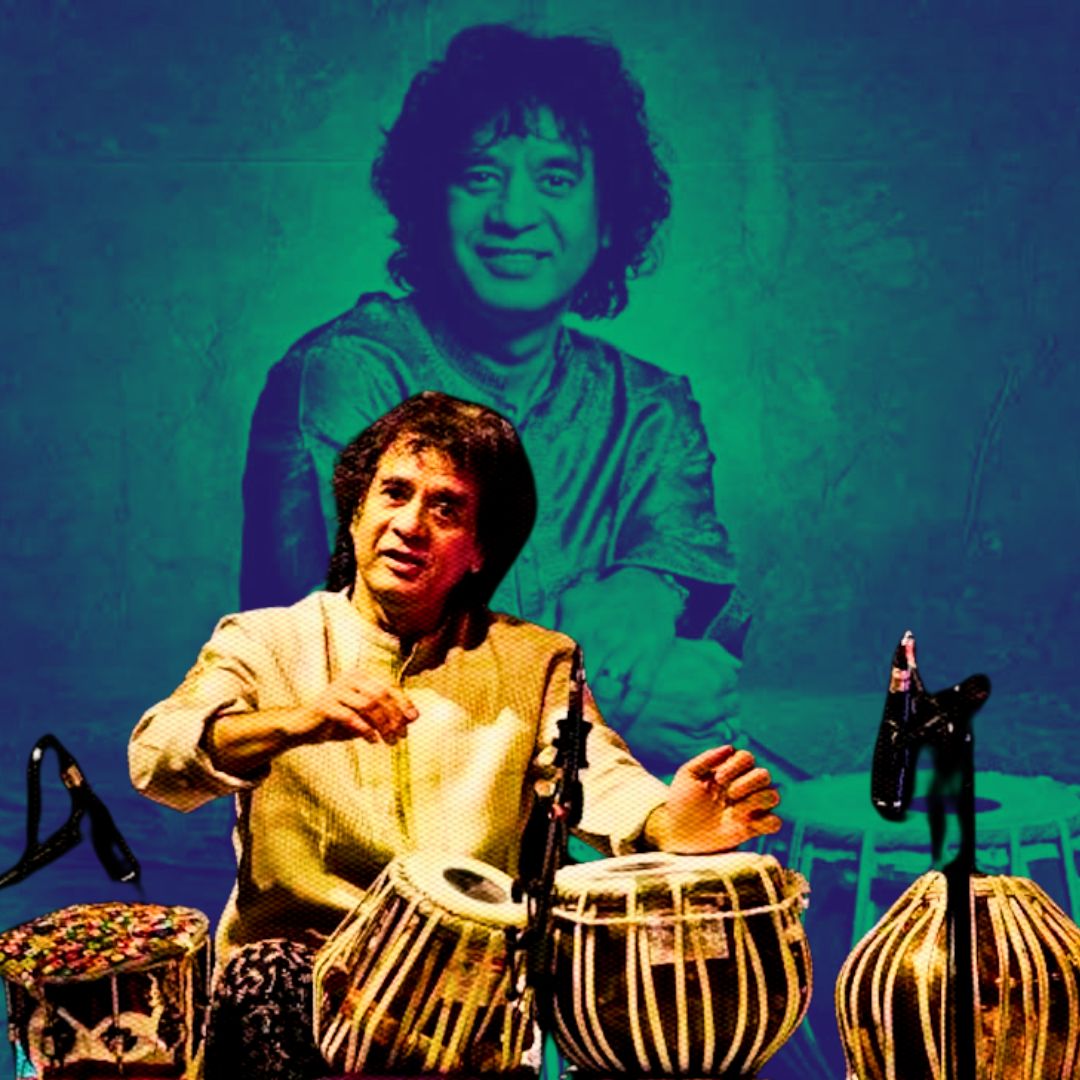Ustad Zakir Hussain, the legendary tabla maestro, passed away on December 15, 2024, at the age of 73 due to complications from idiopathic pulmonary fibrosis. His family confirmed the news, stating that he had been hospitalised for two weeks before being moved to the ICU as his condition deteriorated.
A Musical Icon
Born on March 9, 1951, in Mumbai, Hussain was the son of renowned tabla player Ustad Alla Rakha. He began performing publicly by the age of seven and touring internationally by twelve. His early exposure to music came from his father, who provided him with intensive training that fostered his prodigious talent.
After completing his education at St. Xavier’s College in Mumbai, he moved to the United States in 1970 and performed his first concert at Fillmore East in New York City alongside Pandit Ravi Shankar. Over more than five decades, Hussain became a prominent figure in Indian classical music, elevating the tabla from a supporting instrument to a central figure in performances.
Hussain collaborated with a diverse range of artists across genres, including jazz saxophonist Charles Lloyd, rock legends George Harrison and Van Morrison, and bluegrass musicians Béla Fleck and Edgar Meyer. His innovative work helped bridge the gap between Indian classical music and Western genres, making him a cultural ambassador for India on the global stage. Notably, his album Planet Drum, co-created with Mickey Hart, won a Grammy Award in 1992.
Legacy and Tributes
Following his death, Hussain’s family released a heartfelt statement highlighting his role as a teacher and mentor who inspired countless musicians. “He aimed to motivate the next generation to reach even greater heights,” they remarked. Tributes have poured in from around the world; fellow artists and fans have shared their memories and condolences. Renowned musician Anoushka Shankar described him as “a guiding light for so many,” while Bollywood actor Amitabh Bachchan expressed that Hussain’s music would forever remain a treasure for all.
Health Context
In recent years, Hussain had been open about his health struggles. Diagnosed with idiopathic pulmonary fibrosis several years ago, he continued to perform and teach whenever possible until shortly before his passing.
Educational Contributions
Hussain was not only a performer but also an educator who dedicated much of his life to teaching at institutions like the Ali Akbar College of Music in San Francisco. He initiated workshops and masterclasses worldwide to nurture young talent and promote Indian classical music globally.
Cultural Impact
Hussain redefined the role of tabla in Indian classical music while inspiring many musicians to explore new avenues within traditional forms while embracing global influences. His innovative approach has left an indelible mark on both Indian music and its appreciation worldwide.
Future of His Work
As we reflect on Hussain’s contributions, it is essential to consider how his recordings and teachings will continue to influence future generations. His extensive discography remains a treasure trove for aspiring musicians and enthusiasts alike.
Final Rites
Hussain is survived by his wife, Antonia Minnecola, and their daughters, Anisa Qureshi and Isabella Qureshi. The family has announced that final rites will be held soon at their residence in San Francisco, allowing friends and fans to pay their respects.
The Logical Indian’s Perspective
At The Logical Indian, we recognise Zakir Hussain not just as a musical genius but as a beacon of peace and harmony through art. His ability to unite diverse cultures exemplifies our commitment to dialogue and empathy. In times of loss, it is essential to remember the values he embodied—kindness, coexistence, and positive social change. As we honour his legacy, let us ask ourselves: How can we continue to foster understanding and connection through our own passions? Share your thoughts and experiences with us in the comments below!











